Japanese architect, Yasuyuki Kitamura, designed House in Minohshinmachi for a young couple aiming to prove that a sustainable, highly earthquake-resistant structure can also be economical while creating an ethereal residence with simple lines, totally harmonised with the surrounding natural environment, that blends the boundaries between interior and exterior, opacity and transparency.
-text by the author
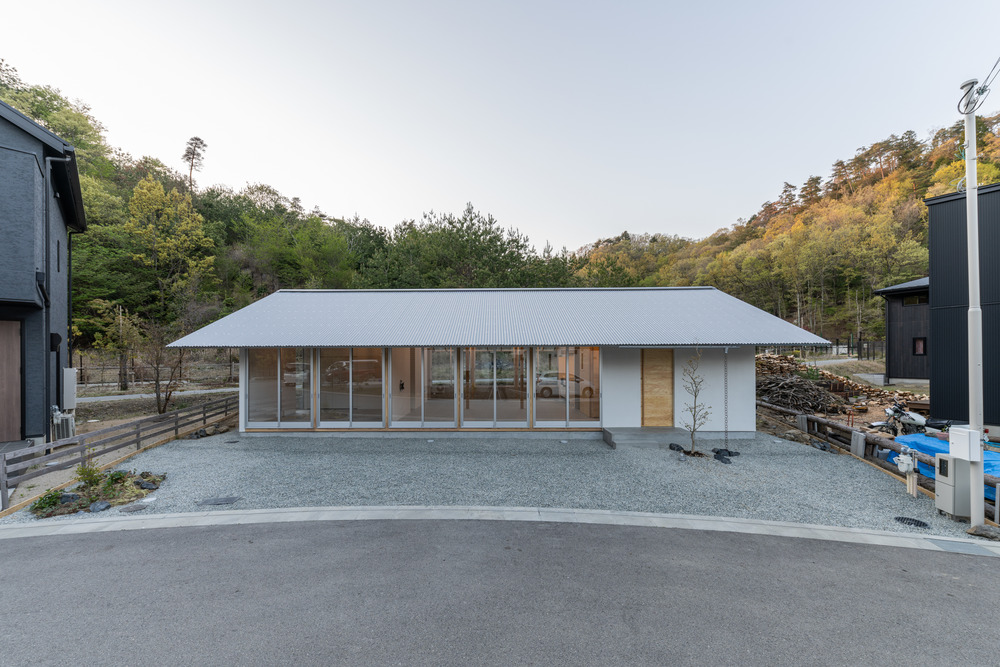
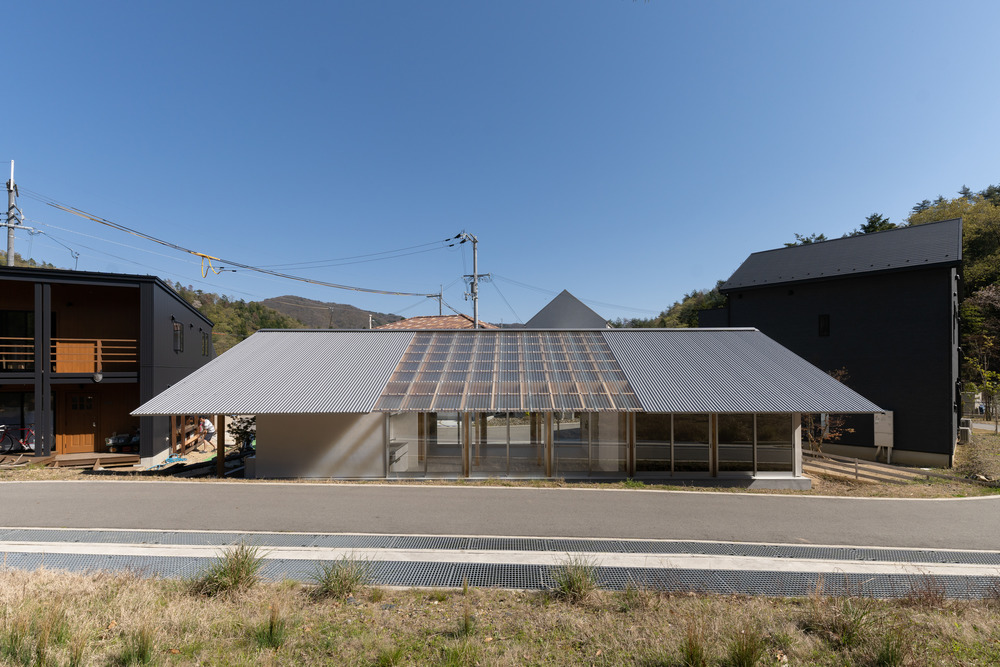
The planned site is located in the northernmost part of Minoh City, Osaka Prefecture, and the surrounding development area was blessed by a natural environment. However, many of the houses built in the surrounding area were not much different from those built in the city center. In this environment, the client couple wanted a simple house that would allow them to absorb the richness of nature in their daily life, unlike living in a house built in the city.
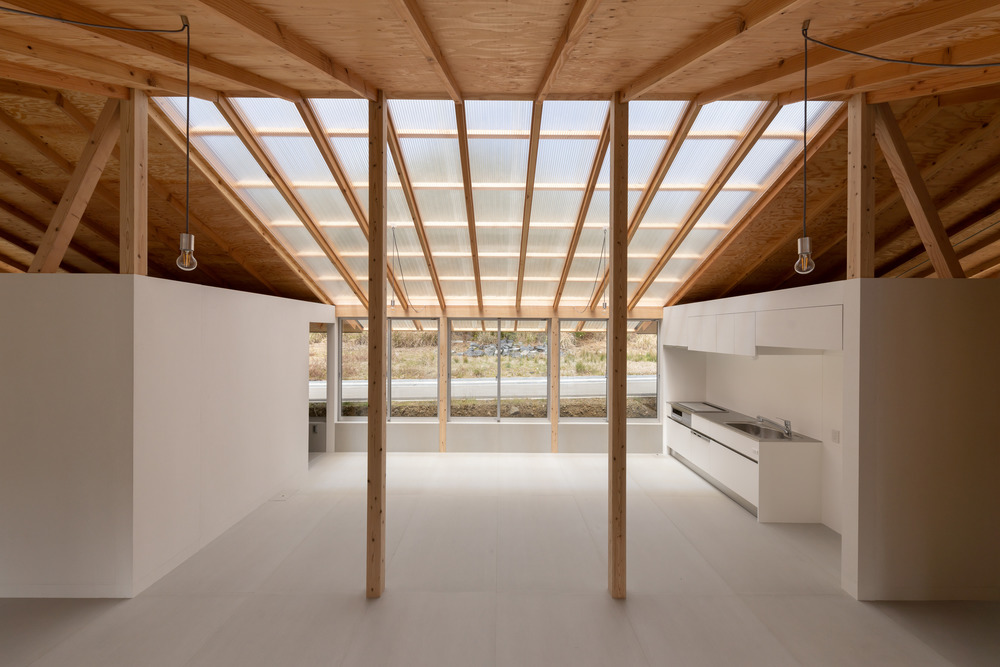
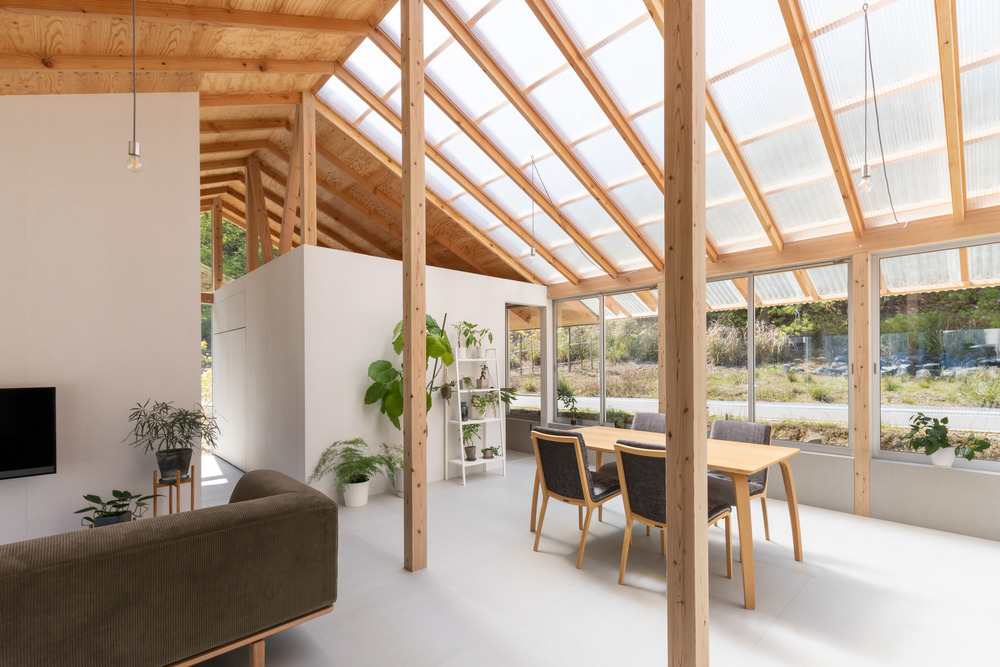
The south side of the site faces the road, and the east and west sides are flanked by residential lots. On the north side, the site faces the management road of Satoyama Farm, which was established as a buffer zone for the landslide disaster warning area. The background features the magnificent greenery of Mount Aogai, the northernmost mountain in Minoh City.
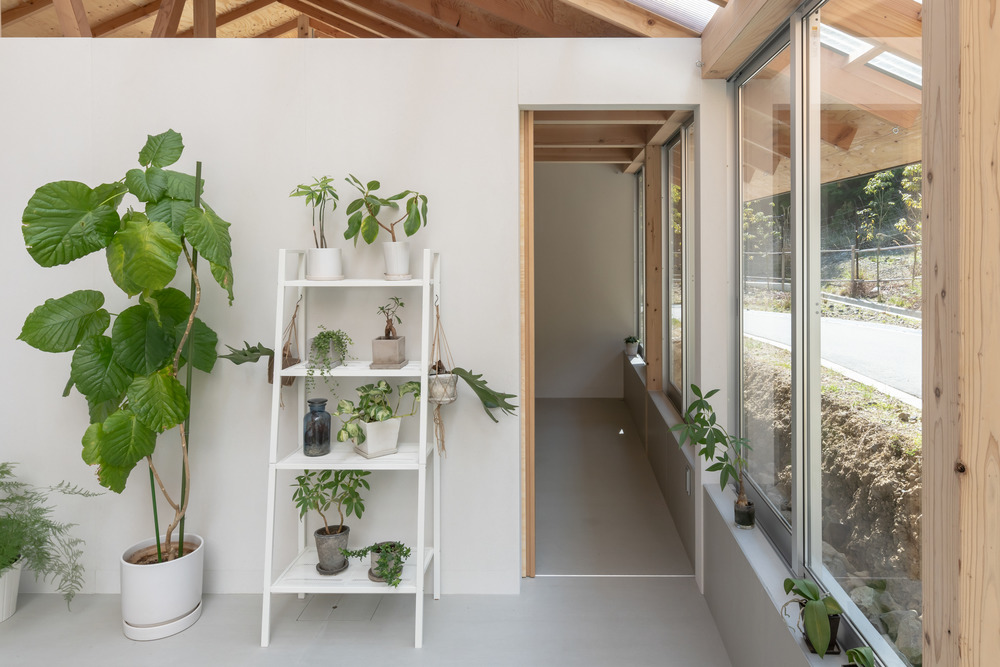
In addressing this border between the ‘city’ and ‘nature’, a quiet residence with a vague boundary between interior and exterior, in harmony with the surrounding natural environment, was required.
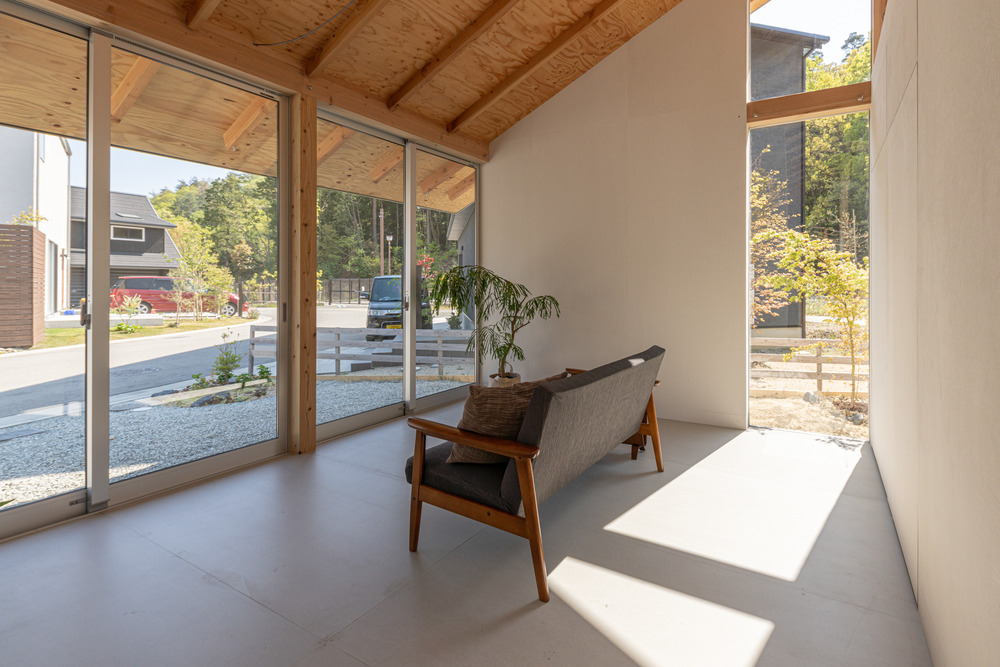
The House is a one-story building with a simple, loosely gabled roof, and the volume is kept low so that it is loosely continuous with the surrounding landscape. Additionally, with a very limited construction budget, the structure was built using conventional wooden construction methods, with all pillars measuring 105mm square, and all of them constructed using ordinary structural metals. A simple symmetrical frame structure with columns spaced one pitch apart, a single longitudinal climbing beam inside and outside, and rafters with narrowed ends are used to ensure high seismic performance and to significantly reduce the construction period.
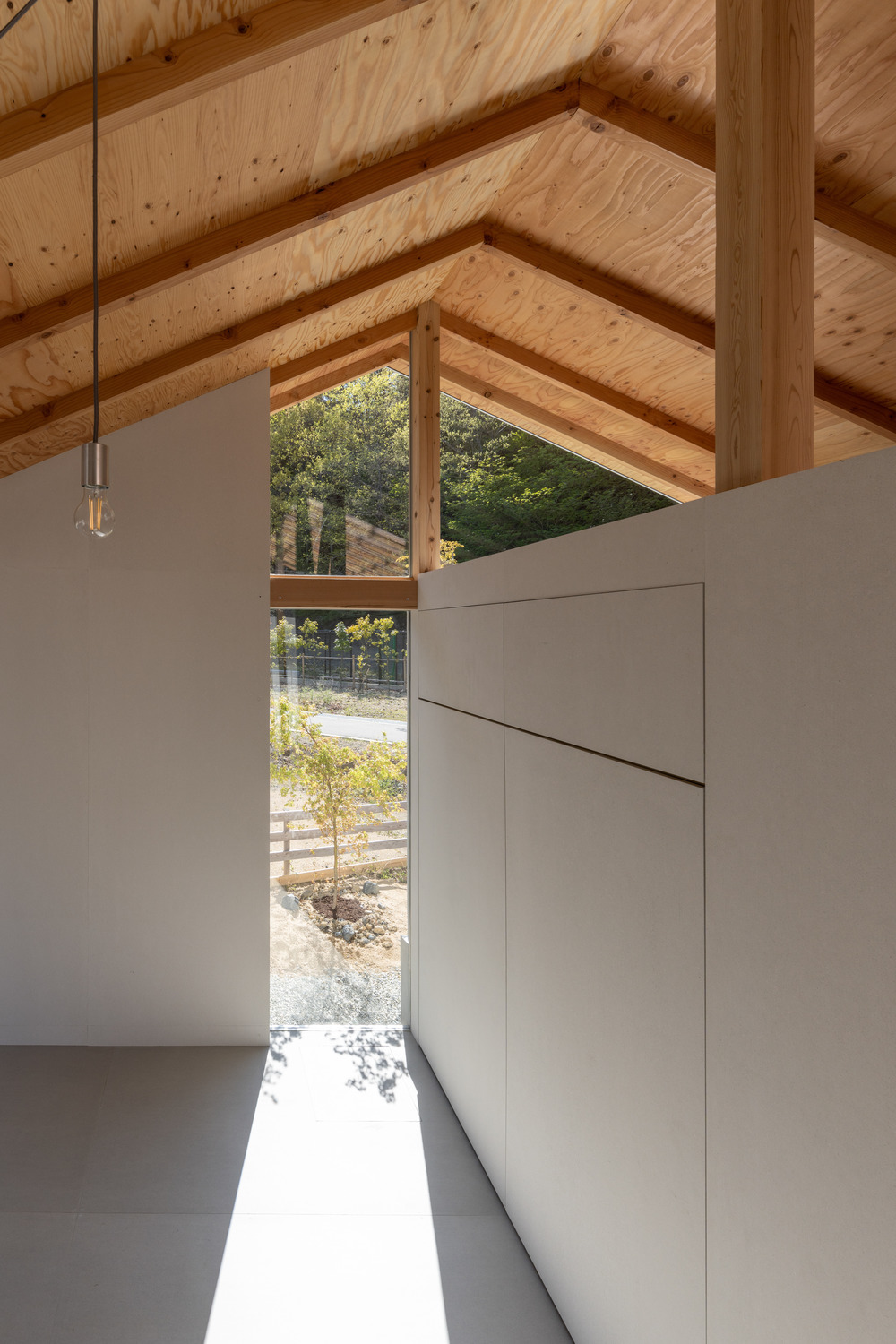
The interior space is extended by paired openings, a light roof, deep eaves, and large skylights that draw in the trees and blue sky. And by nesting the rooms, an intermediate area was created, blurring the interior and exterior of the building. Two pillars placed in the center of the large space, positioned as architectural components with a small cross section, provide the space with a sense of calm, like standing trees in a forest.
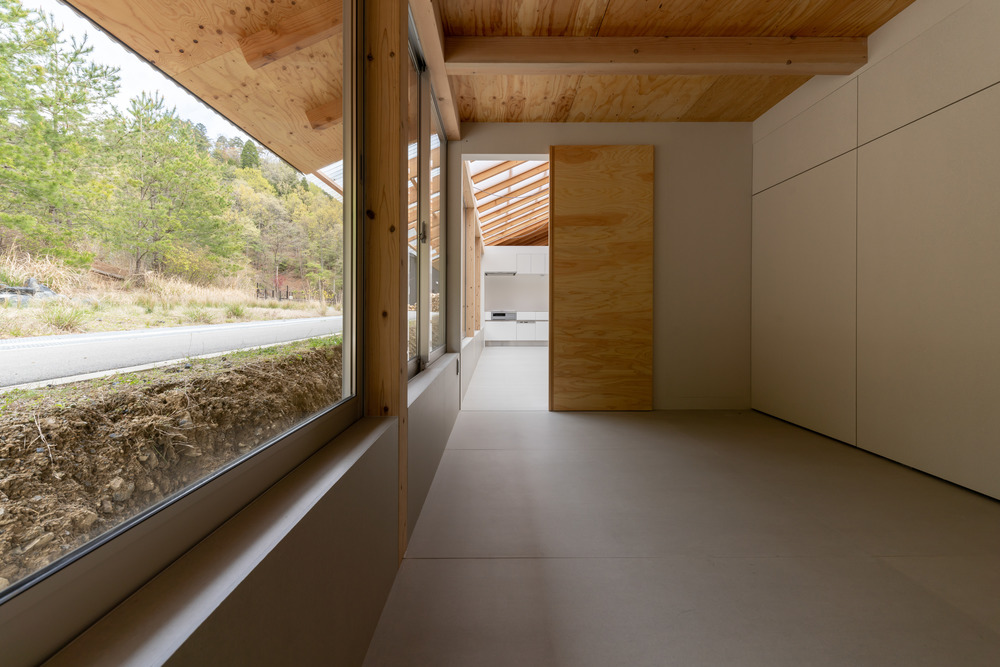
This single architectural gesture establishes the building’s style based on an honest use of materials and a balance between opacity and transparency. Inside the single-storey home, which is divided by slender wooden beams, the kitchen, bath and other functions are contained by a number of nested rectilinear volumes, either white-washed or clad in plywood. Modern and solid, the structures provide a wonderful contrast against the classic, airy envelope. While seemingly light and ethereal, the house is highly earthquake-resistant, thanks to the traditional wooden construction method employed in its making. A new expression in a remarkable setting, the project shows that greatness can be achieved with modest means.
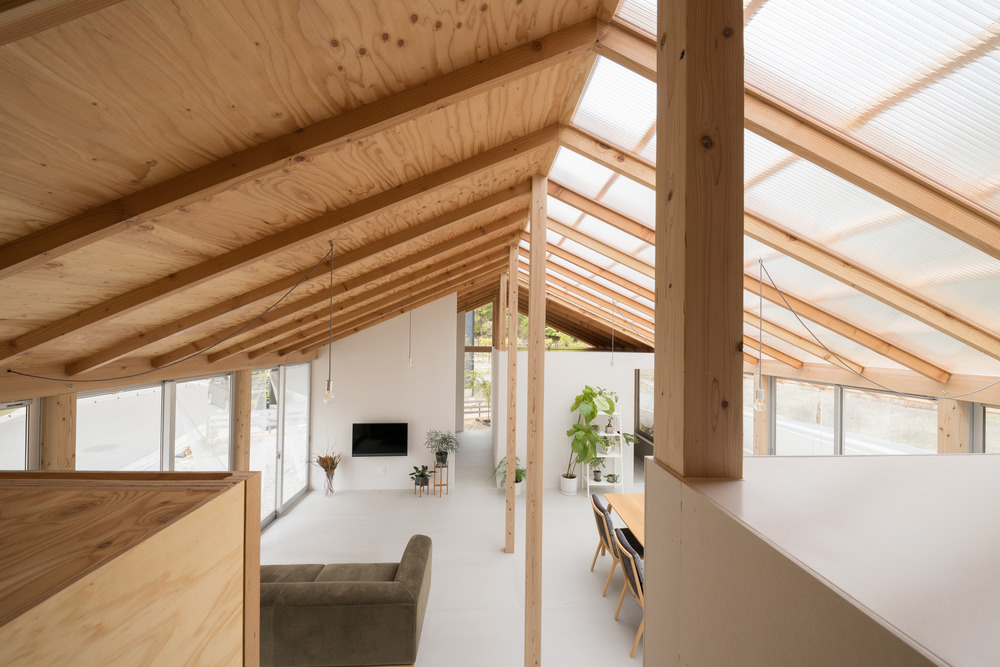
“We have been searching for the future of environmental architecture, and our goal was to reconstruct the forgotten relationship between local character and the surrounding natural environment. The result is a new type of building that, in addition to its high residential performance, feels more like a part of nature than a landscape,” said architect Yasuyuki Kitamura.
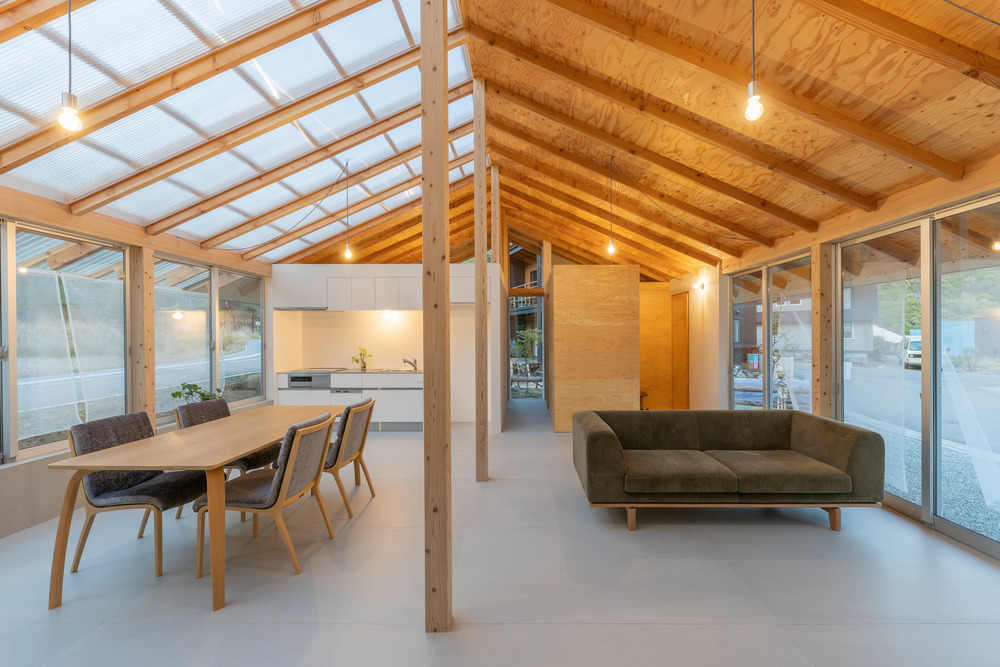
In recent years, the demand for housing performance has steadily increased. This building, with its well-balanced shape and large openings, was designed to withstand earthquakes in Japan, a country renowned for such occurences. The house is designed to earthquake resistance grade 3 standards, and with excellent insulation performance standards, resulting in a calm and relaxing atmosphere.
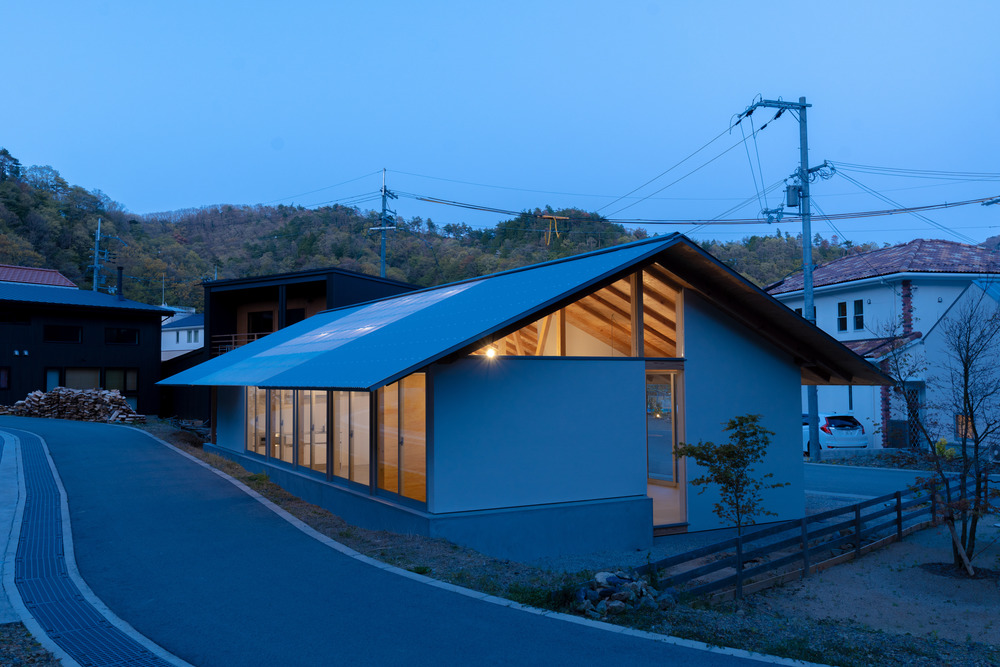
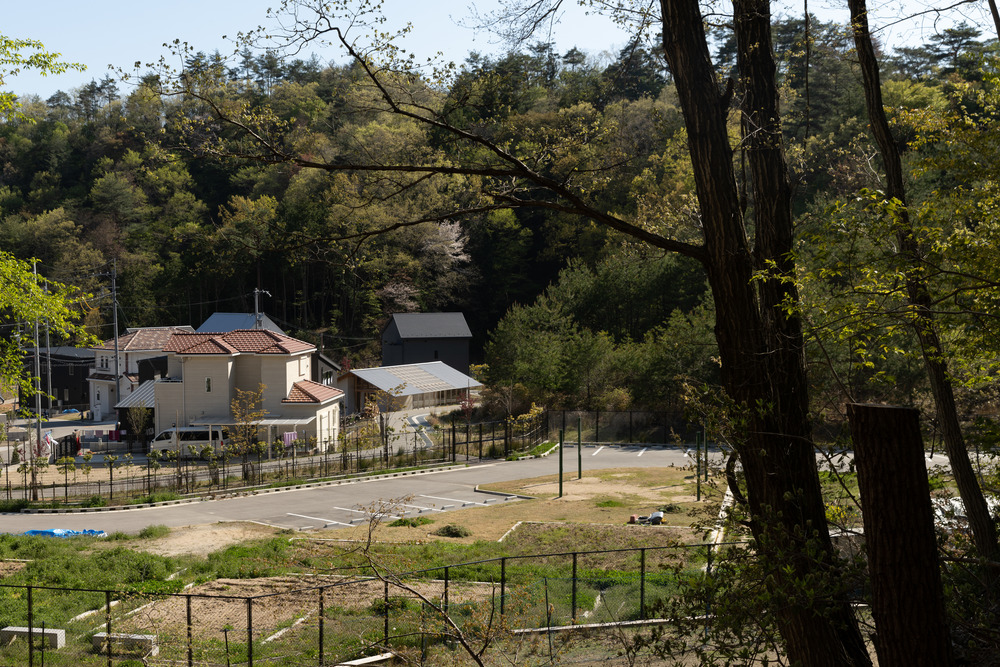
About Yasuyuki Kitamura Architects
Led by Yasuyuki Kitamura, the YKA design team creates innovative projects that advance the state of sustainable architectural design, while embracing the architectural culture, buildings, and urban regions of Japan.
Drawings
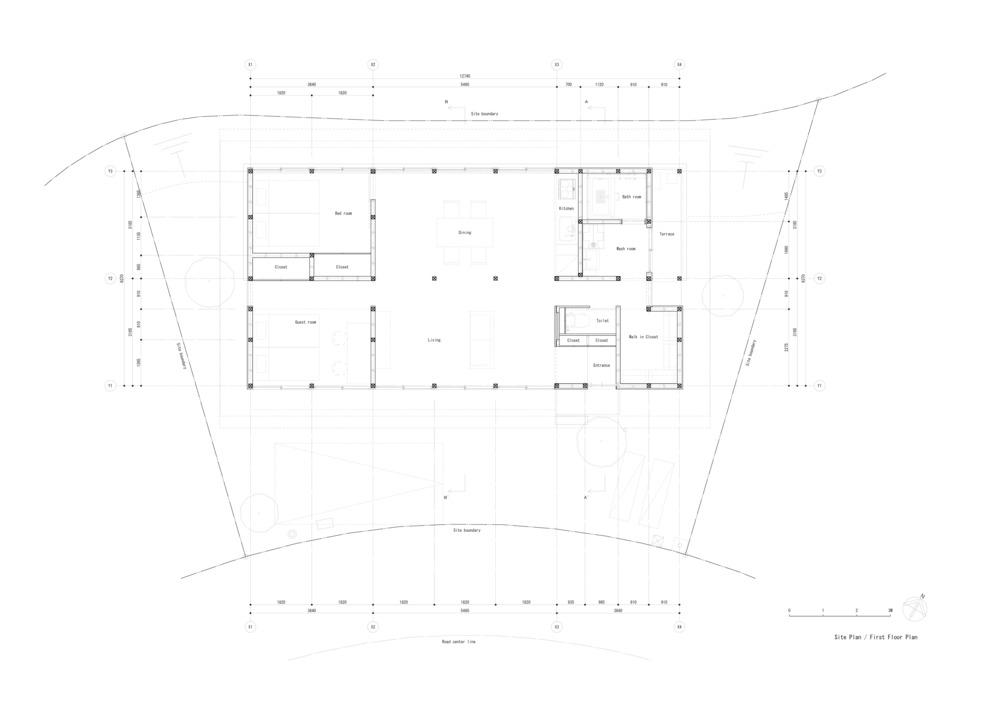
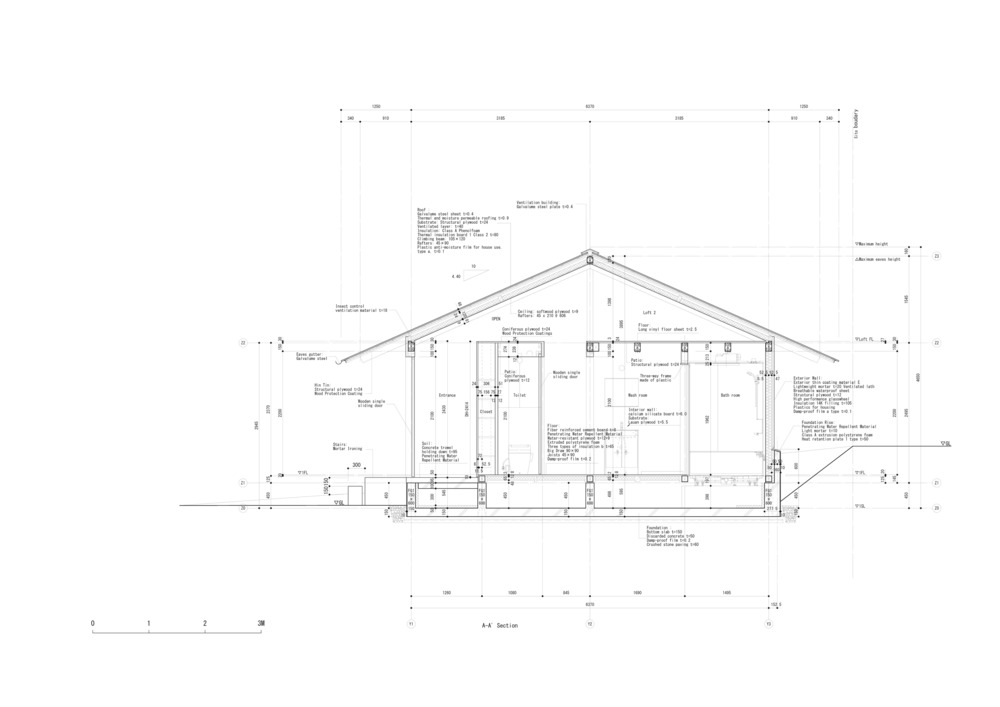
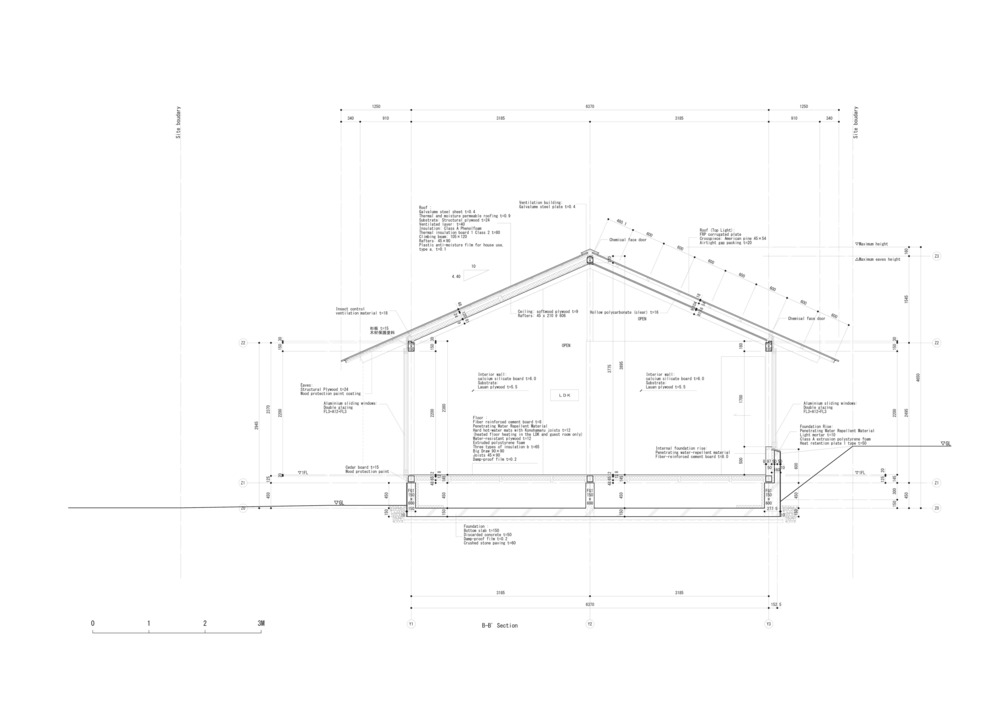
Facts & Credits
Project title House in Minohshinmachi
Typology Architecture, Residential, Housing
Location Minoh City, Osaka, Japan
Date of completion 2020
Site area 210.10m2
Building area 87.52m2
Total floor area 81.15m2
Main structure Wooden frame
Client Shuhei Kimura
Architecture Yasuyuki Kitamura
Structural Engineer Takuma Togo
Builder Takada Corporation
Photography Masashige Akeda
Awards AZ Award, 2021 Architizer A+ Awards Finalist for Architecture + Living Small/Low Cost Design
READ ALSO: Rebhalde_House extension in Brügg | by Atelier 4036 architecture office